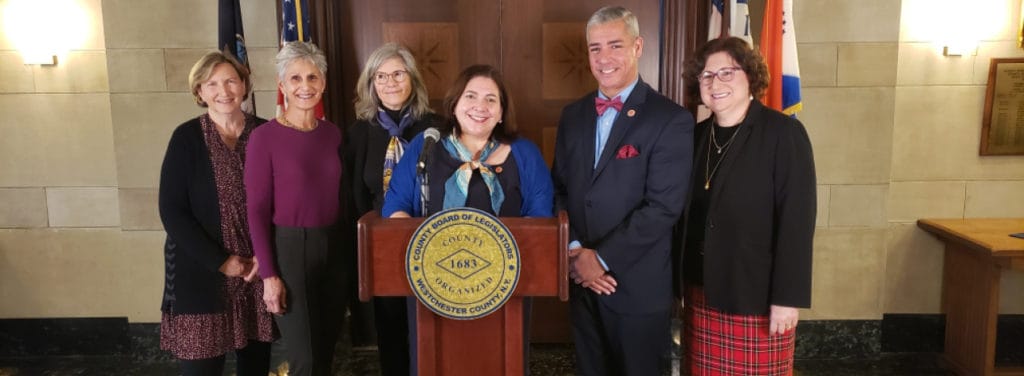
The Board of Legislators is taking up a proposal to require that employers post an expected salary range every time they post a job opportunity in Westchester.
The proposal is designed to combat gender- and race-based pay gaps. It is similar to a law passed in New York City this year and to laws already on the books in several states including Connecticut, Nevada, California, Washington, Maryland and Rhode Island.
According to the U.S. Department of Labor, on average women earn 82 cents to every dollar a man earns, and inequity is worse for women of color. The gap is persistent regardless of educational attainment. According to the Department, compared with white men with the same education, Black and Latina women with only a bachelor’s degree earn 65% of what white men with the same education earn. And Black women with advanced degrees earn 70% of what white men with advanced degrees earn. The situation also persists across nearly all 350 occupations the Department tracked.
Board Chairwoman Catherine Borgia (D – Briarcliff Manor, Cortlandt, Croton-on-Hudson, Ossining, Peekskill), one of the proposal’s co-sponsors, said, “This continues efforts in Westchester to help narrow gender- and race-based wage gaps. In 2018, we passed the Salary History Law to combat the cycle of workers being judged and hired based on their previous wages. We know that for women, especially women of color, these salaries are much lower than their white male counterparts. It is now time for salary transparency, which is a powerful tool to combat pay inequality by giving everyone in the job market access to the same information about salaries.”
Legislation Committee Chair Colin Smith (D – Cortlandt, Peekskill, Yorktown), the measure’s other lead sponsor said, “Salary transparency means job-seekers who have pay expectations based on past experiences will now have a true sense of what their work is worth. Not only can it combat pay inequality but also, hopefully, make the hiring process more efficient for applicants and employers. This introduction is just the beginning of the legislative process. I look forward to input at the committee table from both job seekers and employers as we begin our discussion of this legislation.”
Alisa Kesten, Vice Chair of the Westchester Women’s Agenda, said, “The Westchester Women’s Agenda believes that transparency can advance economic equity that has been too elusive for too long for too many women. This legislation is part of a strong, nationwide trend of enacting laws to help eliminate pay discrimination that has historically prevented women, and particularly women of color, from achieving economic well-being and upward mobility. While we understand that some employers may have concerns, we are fortunate in Westchester to have leaders in both the public and private sectors who believe in equity and fairness. We look forward to open dialog and engagement as the Board begins its deliberations.”
The salary transparency legislation is expected to be taken up in committee later this month.





